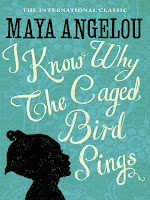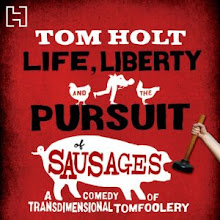 Synopsis: In fin-de-siecle Copenhagen, part-time prostitute Charlotte & her lumpen sidekick, Fru Schleswig, have taken on jobs as cleaning ladies of dubious talent to tide them over the harsh winter of 1897. But the home of their neurotic new employer, the widow Krak, soon reveals itself to be riddled with dark secrets - including the existence of a demonic machine rumoured to swallow people alive. Rudely catapulted into twenty-first-century London, the hapless duo discover a whole new world of glass, labour-saving devices & hectic, impossible romance.
Synopsis: In fin-de-siecle Copenhagen, part-time prostitute Charlotte & her lumpen sidekick, Fru Schleswig, have taken on jobs as cleaning ladies of dubious talent to tide them over the harsh winter of 1897. But the home of their neurotic new employer, the widow Krak, soon reveals itself to be riddled with dark secrets - including the existence of a demonic machine rumoured to swallow people alive. Rudely catapulted into twenty-first-century London, the hapless duo discover a whole new world of glass, labour-saving devices & hectic, impossible romance.Review: I like Liz Jensen when she's in absurd & wacky mode. When she's more serious (as in books like The Rapture & The Ninth Life of Louis Drax) I don't enjoy her as much, it's as if I can suspend disbelief about time travelling & primate human children but when her books are more true to life I find them far fetched & incredible.This is just a real romp from start to finish, it's bawdy & very funny & there's a liberal amount of smut so you need to be broad minded.
Charlotte is a floozie there's no getting away from it & she has the morals of an alley cat but she's likeable & so you do root for her (& she sucks up to the reader something rotten to ensure it.) It's 1897 and Charlotte & her sidekick (or mother .. depending on who you believe) Fru Schleswig are down on their luck. One of Charlotte's regular clients is doing time & another is dead (one bad oyster) & so they need to find an income quickly. And that's how they find themselves working as cleaners for the rather sinister & odd Fru Krak in her gloomy house. Rumour has it that Fru Krak killed her husband, Professor Krak, & further still that his ghost is frequently to be seen travelling the lakeside road to the letterbox. Certainly the house is a strange one, for a start there is the rather mysterious & out of bounds 'Oblivion Room' in the basement. It was Professor Kraks workshop when he was alive & whatever went on in there drew the curiosity & interest of many but these days it is most definitely out of bounds & Fru Krak is murderously determined to keep it that way but Charlotte is one of those girls who most definitely will start poking around the west wing .. especially if forbidden.It's all incredibly silly & ridiculous but at the same time hugely entertaining especially the first half of the book which I just rattled through. I didn't enjoy the book as much when the story moved to twenty-first century England, it seems ridiculous to say that it didn't ring true, given that nearly everything beforehand was so utterly preposterous but when a story moves to more familiar territory it's easier to see the holes in it. Charlotte finds her love interest in the future & I wasn't entirely convinced about the relationship, also .. a bit like the shrew who was tamed .. she wasn't as interesting or funny when she stopped being bad. But they are just small niggles, on the whole I found it inventive & funny.
I've replaced most of my 'ands' with ampersands as Liz does in this book. If you can cope with it in the review (or didn't notice it) then you'll be ok, if it irritates you, the book will drive you mad.
















